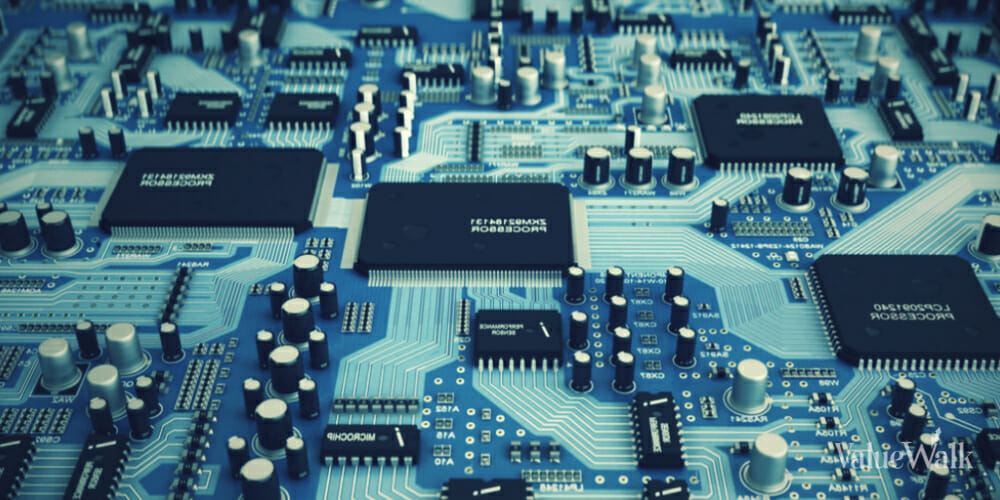In his podcast addressing the markets today, Louis Navellier offered the following commentary.
If you wish to listen to this commentary, please click here.
So Far, So Good
The Treasury auction is going fine. The three-year Treasury notes were sold yesterday and the yields came in a little less than expected, so there was robust demand. So far, everything seems okay, and it looks like we can finance all this.
Now, the reason we can finance the Treasury auction is there is capital coming from China. China is now experiencing deflation as its economy struggles with declining exports and imports for the past few months. China’s official purchasing manager index (PMI) has declined for four straight months and is now at its lowest level in a year.
Meanwhile, this Chinese deflation is expected to be exported to the U.S., especially in the Producer Price Index (PPI) that will be announced on Friday due to falling goods prices. The Consumer Price Index (CPI) will be announced on Thursday and might rise slightly due to higher energy prices.
Firm Energy Prices
In the meantime, energy prices are very firm and rising despite the fact that China is in trouble. The Energy Information Administration (EIA) on Tuesday in its monthly report raised the U.S. crude oil production target to a record 12.8 million barrels per day, up from its previous forecast of 12.6 million barrels per day. This represents an impressive 7.6% production increase from 2022’s production of 11.9 million barrels per day.
Obviously, higher domestic crude oil production is offsetting Russia and Saudi Arabia’s production cuts. Much of the U.S.’s crude oil production, as well as refined products and natural gas, is being exported, which in turn is helping to narrow the trade deficit and boost GDP growth.
Speaking of the trade deficit, the Commerce Department reported on Tuesday that the U.S. trade deficit declined 4.1% in June to $65.5 billion as exports dipped 0.1% to $165.1 billion and imports declined 1.2% to $253.3 billion.
Imports are now at their lowest level in three years as U.S. consumers buy fewer goods. The trade deficit should continue to narrow in July due to higher crude oil prices and natural gas prices boosting exports. A shrinking trade deficit boosts overall GDP growth, so some economists might revise their GDP estimates slightly higher.
It is alarming that ADP is reporting big manufacturing losses in the past couple of months, while the Labor Department is refusing to expose manufacturing job losses. I think it is safe to say that the Labor Department is likely manipulating the payroll figures through seasonal adjustments.
Semiconductor Onshoring Failure
Here is what is really happening. The onshoring of semiconductor manufacturing and battery production that the Biden Administration has been pushing has not been going well. As an example, Taiwan Semiconductor Mfg. Co. Ltd. (NYSE:TSM) has delayed the opening of its new plant in Arizona until 2025, while General Motors Co (NYSE:GM)’s Mary Barra admitted that its Ultium platform is having acute supplier problems, so its battery packs are being manually assembled, which is why GM only made 47 Hummer EVs in the first half of 2023.
Furthermore, if there is an EV manufacturing boom, it is really in Mexico as Ford, GM, and Tesla are all boosting their EV production south of the border.
Essentially, the Biden Administration has nothing to brag about its onshoring efforts in the 2024 Presidential race and, in my opinion, is purposely trying to mask recent manufacturing losses after the Institute of Supply Management (ISM) reported eight straight months that U.S. manufacturing activity contracted (below an ISM reading of 50).
However, if the UAW goes on strike, then the Labor Department can suddenly report the thousands of manufacturing job losses that it has suppressed in recent months since it will be overshadowed by the UAW strike. So I for one, am expecting a UAW strike, because it will help the Biden Administration’s manipulation of the payroll data via the Labor Department under its controversial new leader, Julie Su.
The Biden Administration is reportedly planning on banning U.S. private equity and venture capital firms from investing in semiconductors, quantum computing, and artificial intelligence (AI). Apparently, the Biden Administration is striving to prevent the Chinese military from having access to cutting-edge technology. The poor relations between China and the Biden Administration persist so it will be interesting how China retaliates.
Overall, the U.S. remains an oasis around the world. Deflationary forces from China are spreading to the U.S., especially in wholesale prices. Central bankers will be cutting key interest rates in the upcoming months as deflation spreads. My favorite economist, Ed Yardeni, said in his Morning Briefing that we essentially have two choices, namely #1, Don’t Worry, Be Happy and, #2, Worry, But Be Happy Anyway.
I am in the latter camp. All good stock markets climb a wall of worry, but central bank fears will be diminishing big time in the upcoming months, so in my opinion, investors should celebrate that interest rates will no longer be rising as deflationary forces spread.
Coffee Beans: Blow Fish
While on a fishing trip with her family in late July, Tampa Bay Mayor Jane Castor reeled in a big catch — about 70 pounds of cocaine valued at some $1.1 million dollars. Source: UPI. See the full story here.












